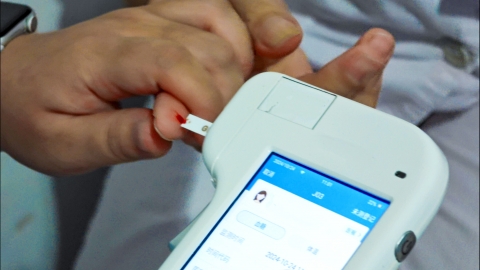Why is fasting blood glucose normal but postprandial blood glucose high?
Generally, normal fasting blood glucose with elevated postprandial glucose may be caused by an unreasonable diet structure, lack of physical activity, insulin resistance, impaired glucose tolerance, type 2 diabetes, and other related factors. If discomfort symptoms occur, it is recommended to promptly visit a qualified hospital for diagnosis and treatment. Detailed explanations are as follows:
1. Unreasonable diet structure
Consuming excessive amounts of high-sugar, high-fat, or high-carbohydrate foods at one time can cause a rapid increase in blood glucose levels after digestion and absorption by the gastrointestinal tract. It is important to adjust the diet structure in daily life and reduce excessive intake of foods such as cakes, fatty meats, and rice.
2. Lack of physical activity
Remaining sedentary or not exercising regularly after meals can reduce the body's consumption of glucose, preventing timely metabolism and utilization of blood glucose, thus leading to elevated postprandial blood glucose. Light activities such as walking or jogging can be performed for 20-30 minutes each time, half an hour to an hour after meals, to promote glucose utilization.

3. Insulin resistance
Reduced sensitivity of body tissues to insulin prevents insulin from effectively promoting glucose uptake and utilization, resulting in difficulty lowering postprandial blood glucose levels normally. Under a doctor's guidance, medications that improve insulin resistance can be used, such as metformin hydrochloride tablets, rosiglitazone maleate tablets, pioglitazone capsules, etc.
4. Impaired glucose tolerance
This condition represents a transitional state between normal blood glucose levels and diabetes, where the body's tolerance to glucose decreases. Postprandial blood glucose may exceed the normal range but does not meet the diagnostic criteria for diabetes. Regular blood glucose monitoring is needed, with an oral glucose tolerance test conducted every 3-6 months.
5. Type 2 diabetes
Relative insufficiency or functional defects in insulin secretion prevent effective regulation of postprandial blood glucose, leading to significant elevations in postprandial glucose levels. Under a doctor's guidance, hypoglycemic medications such as glimepiride tablets, acarbose tablets, empagliflozin tablets, etc., should be used, along with dietary and exercise therapy.
In daily life, it is important to maintain a regular sleep schedule and avoid staying up late; maintain a positive mindset and avoid emotional fluctuations that may affect blood glucose; and regularly monitor blood glucose levels to detect abnormalities early and intervene promptly.




